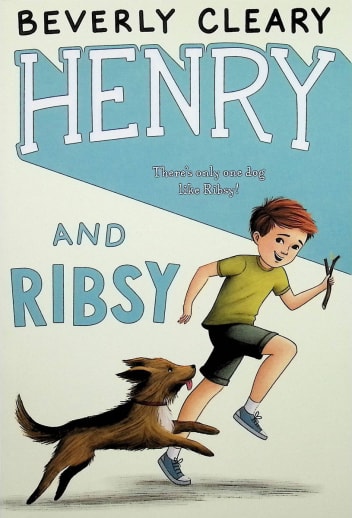Henry loves his dog Ribsy, but he is a handful! And now the neighbors have been complaining. If Henry wants to go fishing with his dad, he has to keep Ribsy out of trouble for two whole months. At first Henry thinks that the bargain will be simple to keep, but Ribsy has other ideas!
Henry and Ribsy by Beverly Cleary
SKU
026647
ISBN
9780380709175
Grade 3-6
These icons are designed to help you quickly understand and learn important information about our products.
Teaching Method
Traditional
Teacher-centered curriculum commonly used in classrooms that may include a text, teacher manual, tests, etc.
Charlotte Mason
A methodology based on the work of a 19th century educator who maintained that children learn best from literature (Living Books), not textbooks.
Classical
A methodology based on the Latin Trivium (three stages of learning), including the grammar stage (memorization and facts), logic stage (critical thinking), and rhetoric stage (developing/defending ideas).
Unit Study
A thematic or topical approach centered around one topic that integrates multiple subject areas.
Montessori (Discovery)
A methodology based on the work of a 20th century educator that emphasizes student and sensory-driven discovery learning and real-life applications.
Other
Other methodologies
Religious Content
Secular
Contains content contrary to common Christian beliefs (i.e. evolution).
Neutral
Avoids religious or theoretical topics or presents multiple viewpoints without preference.
Christian/Religious
Faith-based or including instructional religious content.
Learning Modality
Auditory
Learns through listening, talking out loud or reading out loud.
Visual
Learns through seeing, prefers written instructions and visual materials.
Kinesthetic/Tactile (Hands-On)
Learns through moving, doing and touching.
Multi-Sensory
Curriculum that employ a variety of activities/components.
Presentation
Sequential
Curriculum progresses through well-defined learning objectives. Emphasizes mastery before moving to the next topic.
Spiral
Topics and concepts are repeated from level to level, adding more depth at each pass and connecting with review.
Conceptual/Topical
Focus is on the “why,” often with a unifying concept as well as specific skills; coverage may be broader.
Teacher Involvement
Low Teacher Involvement
Student-led materials; parent acts as a facilitator.
Medium Teacher Involvement
A mix of teacher-led time and independent student work.
High Teacher Involvement
Teacher-led lessons; may utilize discussions, hands-on activities and working together.
Additional Materials Required
No other materials needed
Everything you need is included.
Other Materials Required
There are additional required resources that are a separate purchase.
Other Materials Optional
There are additional resources mentioned or recommended but are not absolutely necessary.
Consumable
Consumable
Designed to be written in; not reusable.
Non-Consumable
Not designed to be written in; reusable.
Our Price
$9.99 $9.99 $7.95
Rainbow Savings: $2.04
Description
Category Description for Henry Huggins Series
Although Henry is friends with Beezus, Ramona and her sister make only a few appearances in this series. Henry Huggins is an active and resourceful boy who can spot a great deal and think of many ways to earn money. In this series, Henry finds a dog, avoids pestering by little neighborhood girls, yearns for a bicycle and tries to land a paper route job. If boys aren't interested by Beezus and Ramona, they are sure to be drawn into Henry's adventures.
Details
| Product Format: | Softcover Book |
|---|---|
| Grades: | 3-6 |
| Brand: | HarperCollins |
| Author: | Beverly Cleary |
| ISBN: | 9780380709175 |
| Length in Inches: | 7.125 |
| Width in Inches: | 5.125 |
| Height in Inches: | 0.375 |
| Weight in Pounds: | 0.3 |
| Ages: | 8 - 12 |
| Awards: | Young Reader's Choice Award 1957 |
| Edition: | 50th Anniversary Edition; Illustrated |
| Illustrated by: | Louis Darling |
| Pages: | 208 |
| Publication Date: | 3/1/1990 |
Videos
Reviews

